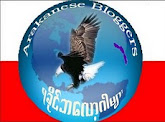Early results in Sri Lanka's first election since Tamil Tiger rebels were defeated after 25 years of civil war put the president in the lead.
According to early counts, President Mahinda Rajapaksa has won over 60% of the popular vote.
Armed troops have gathered around the hotel where his rival for the presidency, General Sarath Fonseka, is staying in central Colombo.
A military spokesman said their presence was a "protective measure".
Udaya Nanayakkara said that some 400 people had gathered near the Cinnamon Lakeside Hotel in the capital.
High turn-out
"We don't know what is their motive and, as a protective measure, we have deployed troops around the hotel, and people who go in and come out are being checked," he said, according to Reuters.
Gen Fonseka has said he fears the troops plan to arrest him if he wins the election, a claim denied by officials. Gen Fonseka is due to give a press conference from the hotel in the coming hours.
Election officials said Mr Rajapaksa had garnered just over a million ballots in an election in which 9.85 million voted.
Some 70% of the electorate of 14.08 million turned out to vote.
The BBC's Charles Haviland, in Colombo, said early results suggested that Gen Fonseka - who leads a motley group of opposition parties - had failed to split the ethnic Sinhalese vote, meaning that the country's Tamil and Muslim minorities would not necessarily play a decisive part in the poll's outcome.
Under Sri Lanka's electoral rules, if no candidate wins 50% of ballots cast in the first count, then voters' second - or even third - preferences are tallied to determine the winner.
Plot-rigging accusation
After a violent and acrimonious campaign, during which four people died and hundreds were wounded, Tuesday's election was largely peaceful.
But there were serious exceptions, especially in the Tamil-populated north.
In the city of Jaffna, the private Centre for Monitoring Election Violence said there were at least six explosions before and just after voting began.
Later there were two blasts in Vavuniya, the town near the huge camps for people displaced by the war. The organisation said it feared this was a systematic attempt to scare people away from voting.
There were also grenade attacks in the Sinhala-dominated centre and south where the fight between the two candidates has been especially bitter, our correspondent says.
It later turned out that Gen Fonseka had not been able to vote because his name was not on the register.
State television put out a barrage of propaganda saying he had no right to be president, our correspondent says. But the Election Commission said there was no legal obstacle to the general assuming the post if he won.
The two men were closely associated with the defeat of the Tamil Tigers last May but fell out soon after. Gen Fonseka quit the military, complaining that he had been sidelined after the war.
The president's side accuses the general of courting separatists. The general has accused the president of plotting vote-rigging and violence, something his rival denies.
Both main candidates have promised voters costly subsidies and public sector pay rises.
However, economists say this will make it hard for the country to meet cost-cutting obligations imposed under the terms of a $2.6bn (£1.6bn) International Monetary Fund loan.
Ref: BBC
5 years ago










0 comments:
Post a Comment